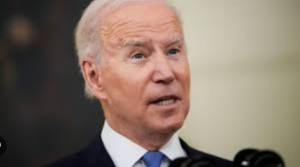
After city dwellers awoke to explosions, Israel cautioned Tehran against reacting.
Four Iranian troops were killed in Israel’s attack on Iran. Additionally, it began strikes on Syria and Iraq at the same time, supposedly targeting interests connected to Iran.
Israel claims that the campaign, which was launched early on Saturday, was a reaction to attacks by “Iran and its proxies” and targeted military locations.
Iran declares that it would keep defending itself from Israeli strikes on Iranian officials, Gaza, and Lebanon.
Israel has publicly declared an attack on Iran for the first time.
Here is what you need to know about the most recent strikes and what lies ahead.
When and what took place in Iran?
During a call with cabinet ministers on Friday night, Israeli Prime Minister Benjamin Netanyahu and Defense Minister Yoav Gallant allegedly approved plans for attacks.
According to Israeli media, Iran received a warning from Israel on Friday not to retaliate.
After 2 a.m. on Saturday, Israel began its initial round of attacks on Tehran (22:30 GMT on Friday).

Al Jazeera’s Resul Serdar reported from Tehran that a second wave struck Tehran and the provinces of Khuzestan and Ilam three hours later.
Israel declared that it had “completed” the strikes and “achieved its objectives” at around 6 a.m. (02:30 GMT).
Operation “Days of Reckoning” targeted Iran’s “means of producing missiles,” missile systems, and other air defense capabilities, according to an Israeli army spokesperson.
The assaults killed four individuals who served in Iran’s military air defense, the state-run IRNA news agency said Saturday night. It provided no information about the four men’s country of station.
According to Iran’s Civil Aviation Organization, flights across the country were temporarily suspended but then restarted at 9am (05:30 GMT).
According to a White House official, President Joe Biden was informed as attacks progressed but the US was not participating in the strikes.

All of Israel’s aircraft that were part of the raid on Iran have reportedly returned to Israel.
Although Israel has not verified it, Syrian state news agency SANA said early Saturday that Israel had carried out airstrikes on military locations in central and southern Syria. While Iraqi airspace was temporarily closed, explosions were also reported in Basra, Iraq; officials later claimed that the explosions occurred in Iran, which is on the other side of the border.
What was struck during the three strike rounds?
According to Iran’s air defense command, although strikes were “successfully countered … though minor damages were caused in some areas, and the extent of the incident is currently under investigation,” military bases in Tehran, Ilam, and Khuzestan were attacked.
Israel claims to have struck 20 military locations used to launch attacks against it.
Iranian officials denied the figure and minimized the campaign’s impact.
According to Al Jazeera’s Serdar, the attacks on Saturday were largely directed at Tehran, with particular attention paid to Iran’s air defense systems, missile bases, and drone facilities.
Israel claimed to have struck Iran, but why?
“In response to strikes by Iran and its proxies,” Israel had been threatening an assault.
“The regime in Iran and its proxies in the region have been relentlessly attacking Israel since October 7,” Israeli military spokesman Daniel Hagari said in a recorded statement made public during the strike.
Israel “has the right and the duty to respond,” according to him.
In retaliation to Israeli attacks on Gaza and Lebanon earlier in October, as well as the killings of senior IRGC, Hamas, and Hezbollah commanders, Iran fired a volley of missiles at Israel.
What was the response in Iran?
Thousands of people were terrified by the explosions that began at 2 a.m., even though some people managed to sleep through the attacks.
As individuals attempted to understand what was going on, videos and posts went viral online.
Ali, 32, of western Tehran told Al Jazeera, “It was stressful anyhow, but not that it was unexpected.”
On Saturday morning, the first day of the Iranian workweek, everyone was out and about as normal.
What was Iran’s reaction?
According to Iran’s Ministry of Foreign Affairs, the attacks are “a blatant violation” of both the UN Charter and international law.
Iran was “entitled and obligated to defend itself against external aggressive acts,” the statement continued.
Iran places a strong emphasis on the Iranian people using all of their abilities to protect its security and important interests.
The statement added, “It also reaffirms its commitment to regional peace and security, reminding all nations in the region of their individual and collective responsibilities to safeguard regional peace and stability.”
Will Iran strike back?
According to analysts, Iran has “plausible deniability” and the option to refrain from retaliating because of the strike’s possibly limited damage, as reported by Nour Odeh of Al Jazeera from Amman.
According to Mohammed Jamjoom of Al Jazeera, who reported from Amman, some anonymous Israeli officials told Israeli media that this was done in order to keep the situation under control moving ahead.
Elijah Magnier, a political and military specialist, predicts that Iran would strike back once two Iranian commanders are killed.
The time and manner of a possible attack are yet unknown, despite Iran’s Foreign Ministry stating that it reserves the right to react.
Israel has threatened to bomb “additional targets” and that it will be “obligated to respond” once more if Iran retaliates.








